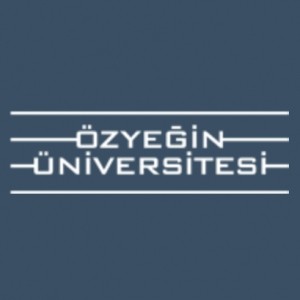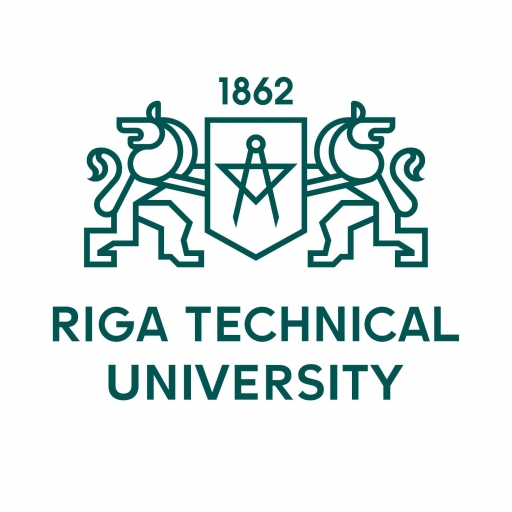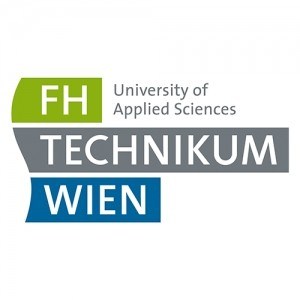Mobility and Logistics at Rhine-Waal University of Applied Sciences is a forward-looking and interdisciplinary programme designed to prepare students for dynamic careers in the modern transportation and logistics industries. This bachelor's degree programme combines theoretical knowledge with practical skills, focusing on the efficient management, planning, and optimization of mobility systems and logistical processes across different sectors. Throughout the course, students will explore a variety of subjects such as supply chain management, transportation planning, traffic engineering, logistics information systems, and sustainable mobility solutions. The programme emphasizes the importance of innovation and technology in shaping the future of mobility, including the integration of digital tools, data analysis, and automation in logistics operations.
Students enrolled in this programme benefit from a close connection to industry partners and real-world projects, which facilitate the development of practical skills and a comprehensive understanding of current market demands. The curriculum promotes an international perspective, offering opportunities for mobility exchanges and collaborative projects with partner universities across Europe, fostering intercultural competence and global outlook. The programme also aims to develop students’ competencies in problem-solving, teamwork, and communication, essential skills for success in the fast-evolving field of logistics and mobility management. Graduates will be equipped to work in various roles such as logistics managers, transportation planners, supply chain analysts, or consulting experts, addressing challenges related to traffic congestion, environmental sustainability, and technological change.
With a strong emphasis on applied research, industry relevance, and sustainable development, the Mobility and Logistics programme at Rhine-Waal University prepares students to contribute effectively to modern transportation systems and logistics networks worldwide. The programme's innovative approach and diverse learning opportunities make it an ideal choice for students interested in shaping the future of mobility and logistics on a global scale.
Educational organisation
The course takes seven semesters, the first two focusing on the basics of science and communication. In one of the subsequent winter semesters (usually the fifth semester of your studies), you go out to a company or another university to gain experience and extend your horizons. After this, you deepen your understanding of the subject, finishing with a Bachelor's project in your seventh semester. The project is as close to real practice as possible and often takes place inside a company.Study abroad unit(s)
Participants spend one semester of the programme at a university abroad or undertake a five-month work placement.Internships
Five-month internship at a company in a related fieldForms of assessment
Written examination, laboratory reports, oral examinationCourse objectives
Our Science Communication and Bionics students will be able to enter many careers in the following areas:- public relations departments in universities, extramural research institutes, government organisations or companies
- communications offices in NGOs, unions and lobby groups
- research communication in companies and for large research projects
- editors and freelance journalists with specialised magazines, newspapers, for television, radio and, of increasing importance, online
- consultants and communicators in PR and marketing agencies, particularly when the customer has a scientific or technical focus
- press offices of charities and foundations sponsoring scientific works, cluster organisations, research councils and similar institutions
- editors for scientific publishers
Language requirements
Please note that for Bachelor's degree programmes English language skills at level B2 according to the Common European Framework of Reference are required. Please be aware that all applicants' test report form numbers will be checked. The following certificates are accepted:IELTS: 6.0 - 6.5
TOEFL (Internet-based test): minimum 80
TOEFL (paper-based test): minimum 550
TOEFL (computer-based test): minimum 213
The TOEFL code of our university is: 6962
The only exceptions to these language requirements are a secondary school certificate or a Bachelor's degree achieved in the following countries: USA, Canada, UK, Ireland, Australia or New Zealand. Please understand that no further exceptions can be made, even if you have achieved a Bachelor's degree taught in English in any other country.
Academic requirements
German entrance qualification for universities of applied sciences or equivalentSee: http://anabin.kmk.org/
Enrolment fees
Approx. 270 EUR per semester. This covers nominal administration fees and includes a semester ticket that allows free travel on most bus and train routes throughout the state of North Rhine-Westphalia as well as to and from Nijmegen in the Netherlands.Costs of living
The "Deutsches Studentenwerk" puts the average cost of living for students in Germany at around 700 to 800 EUR per month. This includes rent, utilities, personal expenses, and other nominal costs. For a sample breakdown of living expenses and information about financing your studies in Germany, please see our website: http://www.hochschule-rhein-waal.de/en/academics/students/costs-scholarships-and-grants.Job opportunities
International students from non-EU countries are legally permitted to work 120 full days or 240 half days per year on a student visa. No additional authorisation from German authorities is required.Rhine-Waal University of Applied Sciences often posts job advertisements for students both inside and outside the university on campus noticeboards. Some jobs at the university only require English, but most jobs in Kleve, Kamp-Lintfort, and surrounding areas will require at least conversational fluency in German. Fortunately, our Language Centre offers German courses that students can attend at no charge.
However, due to the intense workload at Rhine-Waal University of Applied Sciences, first-year students are strongly advised to dedicate their full attention to their studies. In later semesters, you will have a more open schedule and a better idea of how to balance work and studies. This is also a realistic time frame for acquiring speaking proficiency in German while studying full-time.
Funding opportunities within the university
A limited number of scholarships are available for currently enrolled students at Rhine-Waal University of Applied Sciences. The most prominent scholarship is the Germany Scholarship ("Deutschlandstipendium"). German and international students are both eligible to apply. The Germany Scholarship is a stipend of 300 EUR per month awarded each year to a limited number of students who have demonstrated excellent academic performance or exemplary social commitment to the community. Other scholarships, grants, and fellowships are available through regional and national organisations in Germany. Please see our website for details.Rhine-Waal University of Applied Sciences informs all students of important scholarship deadlines in advance so that they don't miss any potential application opportunities.
http://www.hochschule-rhein-waal.de/en/academics/students/costs-scholarships-and-grants/scholarships-and-grants
Arrival support
Rhine-Waal University of Applied Sciences is accessible from the international airports Amsterdam (AMS), Düsseldorf (DUS), Cologne/Bonn (CGN), and Weeze (NRN). The university does not offer any pick-up services, but both Kleve and Kamp-Lintfort can be reached by public transportation from any of these airports.If you anticipate any travel problems, delays, or unexpected changes to your plans, please contact our Welcome Centre so that we can support you with helpful advice.
Services and support for international students
Our Welcome Centre supports international students during their first few weeks in Germany. The Welcome Centre provides helpful advice and guidance on contracts, opening a bank account, registering your place of residence, applying for a student visa, setting up health insurance, and more.The student mentors at the Welcome Centre know first-hand what it's like adjusting to life as a student in Germany. They are also an important first contact point for students with personal and social issues, as they can direct students to the right place for their specific needs. The Welcome Centre also promotes student culture at the university by organising trips and excursions to destinations all around the region as well as a range of social events for students such as the annual "Freshtival", the university's week-long orientation festival for new students in the winter semester.
Accommodation
Rhine-Waal University of Applied Sciences strongly urges you to make accommodation arrangements before your arrival. The university does not have its own residence halls, but the "Studierendenwerk Düsseldorf" runs dormitories near campus in Kleve and Kamp-Lintfort with options for single rooms or two- and three-room flats. Prices start at around 220 EUR per month. Room availability in these dormitories is limited and subject to a waiting list, so it's important to register online for a room as soon as possible. Please note that a security deposit of three months' rent is also required.Most students choose to share a private flat off campus with fellow students. There are a number of popular online portals for finding a flat in Germany, for example: http://www.wg-gesucht.de. Rhine-Waal University of Applied Sciences also maintains its own list of available flats and rooms for students on its website. Thanks to the flexibility of the Semester Ticket, students can live in Kleve, Kamp-Lintfort, or one of the many cities and towns nearby and reach campus by public transport. For more information and helpful tips on finding a flat, please see our website: http://www.hochschule-rhein-waal.de/en/academics/prospective-students/housing.










